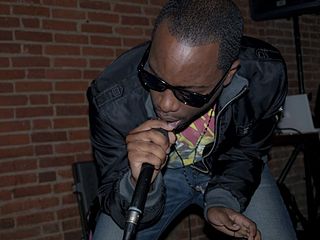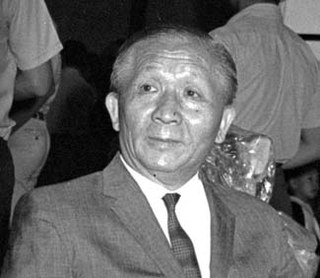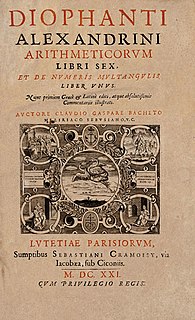A Quote by Roger Rees
Rattigan's world demanded unwavering trust in principles, loyalty, and virtue. At the time of this play - Rattigan was writing this play in 1947 about an incident that took place in 1914 - should a boy say he didn't do something, his father would believe him; a British father would take the defense of his son's honor to his grave.
Related Quotes
When the father dies, he writes, the son becomes his own father and his own son. He looks at is son and sees himself in the face of the boy. He imagines what the boy sees when he looks at him and finds himself becoming his own father. Inexplicably, he is moved by this. It is not just the sight of the boy that moves him, not even the thought of standing inside his father, but what he sees in the boy of his own vanished past. It is a nostalgia for his own life that he feels, perhaps, a memory of his own boyhood as a son to his father.
My earliest influences would definitely be my father, just seeing him play in different bands and going to his shows and going to the rehearsals. You know what I'm saying, it was the typical story of a son looking up to his dad. So the years that my father was around, my father was my biggest influence.
You cannot show real respect to your parents by perpetuating their errors.... Do you consider that the inventor of a steel plow cast a slur upon his father who scratched the ground with a wooden one? I do not consider that an invention by the son is a slander upon the father; I regard each invention simply as an improvement; and every father should be exceedingly proud of an ingenious son. If Mr. Talmage has a son, it will be impossible for him to honor his father except by differing with him.
The Son is called the Father; so the Son must be the Father. We must realize this fact. There are some who say that He is called the Father, but He is not really the Father. But how could He be called the Father and yet not be the Father?... In the place where no man can approach Him (I Tim. 6:16), God is the Father. When He comes forth to manifest Himself, He is the Son. So, a Son is given, yet His name is called 'The everlasting Father.' This very Son who has been given to us is the very Father.
His epitaph: This tomb hold Diophantus, Ah, what a marvel! And the tomb tells scientifically the measure of his life. God vouchsafed that he should be a boy for the sixth part of his life; when a twelfth was added, his cheeks acquired a beard; He kindled for him the light of marriage after a seventh, and in the fifth year after his marriage He granted him a son. Alas! late-begotten and miserable child, when he had reached the measure of half his father's life, the chill grave took him. After consoling his grief by this science of numbers for four years, he reached the end of his life.
Sir Walter, being strangely surprised and put out of his countenance at so great a table, gives his son a damned blow over the face. His son, as rude as he was, would not strike his father, but strikes over the face the gentleman that sat next to him and said, "Box about: twill come to my father anon."
Jesus is the prime exemplar of life in God's presence. He lived out of an awareness of the identity God had given him, not the identity the world wanted to give him; he led an active, ongoing prayer life; he took time apart from the world to be with his Father; he made his Father's agenda his agenda; he made his Father's love for people evident in tangible ways; and so on. These are all characteristics that we should emulate in our lives.
I think for my parents it was like "A Boy Named Sue," the Johnny Cash song. A guy named Sue tries to track down his father to take it out on his father for naming him Sue. And his father says, "Look, I knew I wasn't going to be around. So I gave you the name so that you would grow up strong enough to take the hits and fight back." So I like to believe that's why my parents gave me this stupid name.
And he arose and came to his father. But while he was still a long way off, his father saw him and felt compassion, and ran and embraced him and kissed him. And the son said to him, 'Father, I have sinned against heaven and before you. I am no longer worthy to be called your son. But the father said to his servants, 'Bring quickly the best robe, and put it on him, and put a ring on his hand, and shoes on his feet. And bring the fattened calf and kill it, and cet us eat and celebrate. For this my son was dead, and is alive again; he was lost, and is found.' And they began to celebrate.
Sherman made the terrible discovery that men make about their fathers sooner or later... that the man before him was not an aging father but a boy, a boy much like himself, a boy who grew up and had a child of his own and, as best he could, out of a sense of duty and, perhaps love, adopted a role called Being a Father so that his child would have something mythical and infinitely important: a Protector, who would keep a lid on all the chaotic and catastrophic possibilities of life. ~Tom Wolfe
Were I to go down into the market-place, armed with the powers of witchcraft, and take a peasant by the shoulders and whisper to him, 'In your lifetime, have you known peace?' wait for his answer, shake his shoulders and transform him into his father, and ask him the same question, and transform him in his turn to his father, I would never hear the word 'Yes,' if I carried my questioning of the dead back for a thousand years. I would always hear, 'No, there was fear, there were our enemies without, our rulers within, there was prison, there was torture, there was violent death.
Heat flushed Chauncey's neck; it took all his energy to curl his hands into two weak fists. He laughed at himself, but there was no humor. He had no idea how, but the boy was inflicting the nausea and weakness inside him. It would not lift until he took the oath. He would say what he had to, but he swore in his heart he would destroy the boy for this humiliation.
To be "in Christ" is to place one's trust in Him for salvation from sin. To be "in Christ" is to trust His goodness, not our own; to trust that His sacrificial death on the cross paid the complete debt of death we owe for our sin; to trust that His resurrection gives us eternal life instead of relying upon our own ability to please God. To be "in Christ" is to claim, by faith, the free gift of salvation. To be "in Christ" is to enjoy a completely restored relationship with our Father in heaven by virtue of His Son's righteous standing.




































